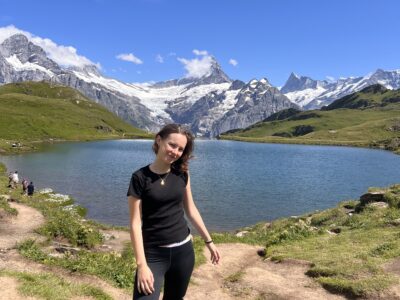By: Noah Morgenstein
As part of the fall semester Capstone Workshop in Sustainable Development, seniors in the Undergraduate Program in Sustainable Development have partnered with organizations in the New York area to work on a range of projects aimed at combatting challenges to sustainability. This semester’s clients include West Point Academy, the Metropolitan Waterfront Alliance, and West Harlem Environmental Action, Inc.
The capstone course requires students to act as consultants and to work collaboratively to create solutions to sustainability problems. Unlike most college courses, students do not simply produce a final paper or take a test. On the contrary, students craft recommendations to help clients address complex sustainability problems. Often these recommendations are adopted and implemented in the organizations. Through the workshop, clients benefit from fresh and innovative ideas and research, while the students gain real life experience as consultants. Under the guidance of professors Stuart Gaffin and Radley Horton, students are currently participating in the following projects:
Climate Change and Water Availability in the Nile River Basin
Students have partnered with West Point Academy to conduct an official study on population growth and water availability in the Nile River Basin, funded by the U.S. Army Engineer Research and Development Center. The client’s end goal is to analyze and prevent potential conflicts driven by water scarcity in the region.

Students will use their analysis to produce a nested climate model within a Vensim model that the client has constructed. Analysts at West Point Academy hope to use this tool to more precisely model potential conflict, establish measures of prevention, and guide water distribution for the rest of the century.
Green Building Council for Sustainable Waterfront Projects
The Metropolitan Waterfront Alliance (MWA)– in partnership with civic, public, and private partners—would like to create a council to stimulate and incentivize environmentally resilient, ecologically restorative and publicly accessible waterfront development in the New York-New Jersey Harbor and Estuary. Modeled after the Green Building Council, the council will be comprised of developers, real estate representatives, regulators, engineers, ecologists, and civic leaders. It will certify waterfront projects that meet the waterfront design guidelines and related criteria for resiliency from coastal flooding, sea level rise, and wave action while at the same time meeting design criteria for ecological quality and public access.
Students have been asked to assist the MWA in defining the waterfront building council’s possible structure and initial priorities, and to produce a model for operations and financing.
The Harlem Green Zone Initiative
West Harlem Environmental Action, Inc. (WEACT) is a community-based organization whose mission is to build healthy communities by assuring that low-income and minority individuals participate in the creation of 
The Harlem Green Zone Initiative aims to address the combined challenges of high unemployment, poorly maintained housing, and a legacy of environmental degradation and related poor health outcomes, in what the New York State DEC has designated as an “environmental justice” area. Specifically, the initiative seeks to secure state legislation to have Green Zones formally designated as individual, geographically-bound areas, into which resources from the municipal, state and federal levels of government, as well as public-private partnerships, can be coordinated to transform these communities from economic, environmental, and social failure zones to healthy, thriving neighborhoods.
Students will assist the client in developing a strategy to get the initiative enacted as legislation. To accomplish this goal, students will first conduct a cost-benefit analysis of the proposed policy. Then, they will analyze the strengths and weaknesses of similar zoning policies across the country, as well as the legislative mechanisms that were used to bring the policies into effect. Lastly, students will develop a model case of the Harlem Green Zone and conduct a pro forma analysis of the model.
Noah Morgenstein is an intern for the Office of Academic and Research Programs at the Earth Institute. He attends Columbia College and will graduate in 2015 with a degree in Economics and Political Science.



